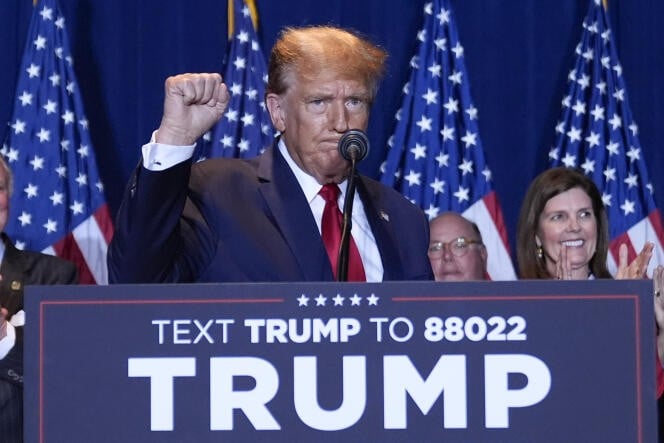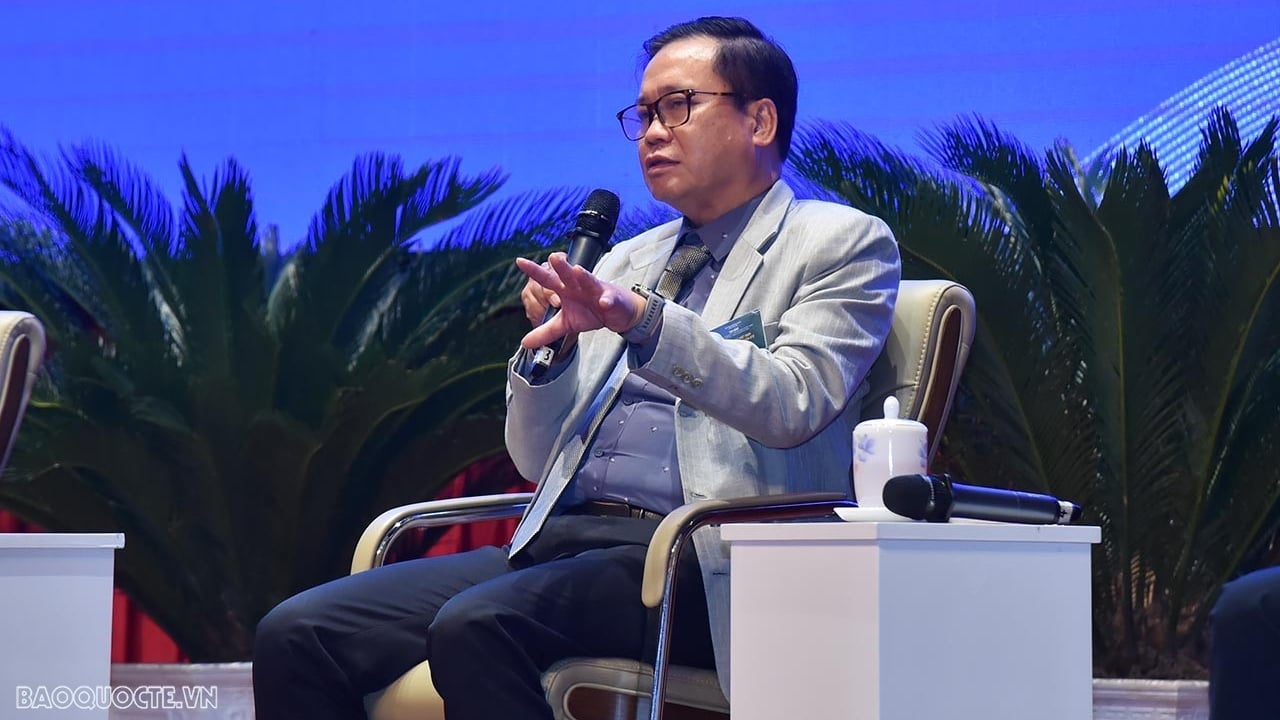Donald Trump’s victory over the Republican candidate in South Carolina has further strengthened his confidence in the upcoming primaries. The predictable internal race within the Republican Party has given Trump more time to prepare for his showdown with incumbent President Joe Biden.
 |
| Former President Trump speaks in Columbia, South Carolina after his victory on February 24. (Source: AFP) |
Quick victory in South Carolina
According to the US press, on February 24, in the state of South Carolina, a primary election took place to choose the Republican Party's presidential candidate.
Previously, the Democratic primary election in this state took place on February 3 with an overwhelming victory belonging to incumbent President Joe Biden (96.2% of the votes).
According to the results announced on the morning of February 25, with about 99% of the votes counted, former President Trump won against his only opponent, Ms. Nikki Haley, former US Ambassador to the United Nations and former Governor of South Carolina, with a gap of 20.3 percentage points: Mr. Trump won 59.8% of the votes compared to Ms. Haley's 39.5%.
With the above results, Mr. Trump won 47 out of 50 delegates representing South Carolina; Ms. Haley won 3 delegates. According to South Carolina's election law, the winning candidate will win the support of 29 delegates.
Next, the candidate with the highest number of votes in each district will win 3 delegates to represent that district.
Thus, as of the morning of February 25, the number of delegates pledged to support former President Trump and former Ambassador Haley is 110 and 20 respectively. A Republican candidate needs the support of 1,215 delegates to officially become the party's presidential candidate.
In terms of vote distribution, former Ambassador Haley is the favorite among moderates and “independents” (those who have not officially registered with either major party) in South Carolina. However, former President Trump has strong support from most other groups of voters, especially conservatives.
In his victory speech on the evening of February 24, former President Trump did not directly mention former Ambassador Haley, but expressed joy at the "quick" victory in South Carolina and said he "has never seen the Republican Party so united".
Former Ambassador Haley then congratulated him and once again affirmed that she would continue to participate in the race for the Republican presidential nomination because “40% (of South Carolina voters who voted for her) is not a small number”, and they deserve to choose a candidate who is not President Biden or former President Trump.
The only "star" of the Republican Party
Speaking at former President Trump's victory celebration, Senator Lindsey Graham (Republican, South Carolina) affirmed that Mr. Trump is the most qualified candidate to become President.
He said South Carolina voters were “not against” former Ambassador Haley, but simply “strongly for” Mr. Trump, stressing that “it is time for the Republican Party to unite and support a single candidate.”
The majority of the American media, including newspapers and magazines with a liberal, conservative or neutral orientation such as AP, The New York Times, Fox News, The Wall Street Journal... all assessed this as a "big" victory for former President Trump and said that former Ambassador Haley "has almost no chance" of becoming the Republican Party's presidential candidate.
The Wall Street Journal commented that even if Ms. Haley persists in running, former President Trump will win enough delegates to officially become the party's presidential candidate around mid-March 2024.
The Republican Party continues to hold primary elections in Michigan on February 27 and especially in 15 states and territories on Super Tuesday (March 5), including populous states such as California and Texas.
However, with Mr. Trump's victory in South Carolina, the US presidential election in November is almost certain to be a rematch between Mr. Trump, 77, and Mr. Biden, 81. In the latest poll conducted by RealClearPolitics , Mr. Trump is supported by 46.1% of voters nationwide, 1.9 percentage points more than the 44.2% support rate for Mr. Biden.
Deepfake - the silent threat
As the US elections approach, the threat of AI-generated fake videos, also known as deepfakes, is becoming increasingly serious.
With the ability to create indistinguishably realistic images, videos, and audio, deepfakes are becoming a dangerous weapon in spreading misinformation and threatening the integrity of elections.
One of the most recent examples of this technology being misused was a robocall allegedly made by US President Joe Biden to thousands of voters in New Hampshire, in which a fake voice attempted to convince voters that early voting was pointless.
The emergence of deepfakes in election campaigns not only blurs the line between truth and falsehood, but also poses many challenges for authorities in verifying and combating misinformation.
The US Federal Communications Commission has ruled that robocalls using AI-generated voices are illegal under federal telecommunications law, opening the door to sanctions and lawsuits against violators.
However, preventing the abuse of deepfakes is not only a legal responsibility but also requires close cooperation between lawmakers, technology companies and governments.
According to Dan Weiner, Director of the Elections and Government Program at the Brennan Center for Justice at New York University School of Law (USA), the use of AI is not only a threat but also a tool to amplify the threat. He is concerned that the emergence of deepfakes can give rise to false messages and influence voters' election decisions.
In this context, many US states have introduced bills to control fraudulent activities in elections. Measures ranging from requiring transparency to prohibiting the use of deepfakes in election campaigns have been proposed to protect the fairness and transparency of the election process.
However, with the constant development of technology, preventing the abuse of deepfakes remains a major challenge for lawmakers and technology researchers.
As important elections approach, ensuring transparency and fairness in the electoral process becomes an urgent task for the entire international community.
Source






































![[Photo] Prime Minister Pham Minh Chinh chairs Government Conference with localities on economic growth](https://vstatic.vietnam.vn/vietnam/resource/IMAGE/2025/2/21/f34583484f2643a2a2b72168a0d64baa)




























































Comment (0)